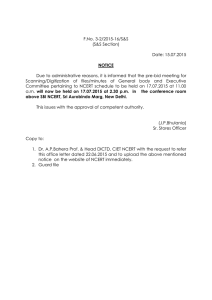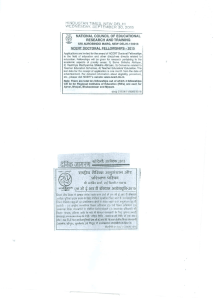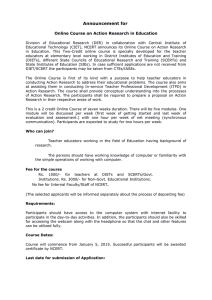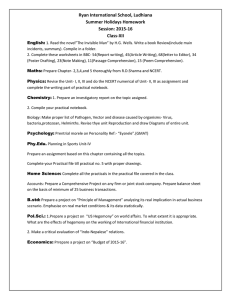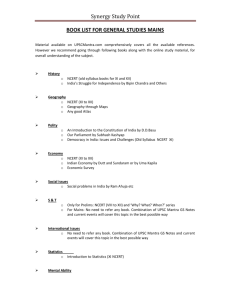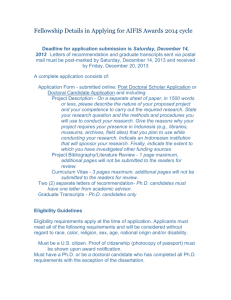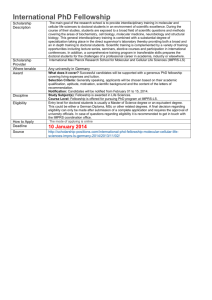NCERT Doctoral Fellowships
advertisement
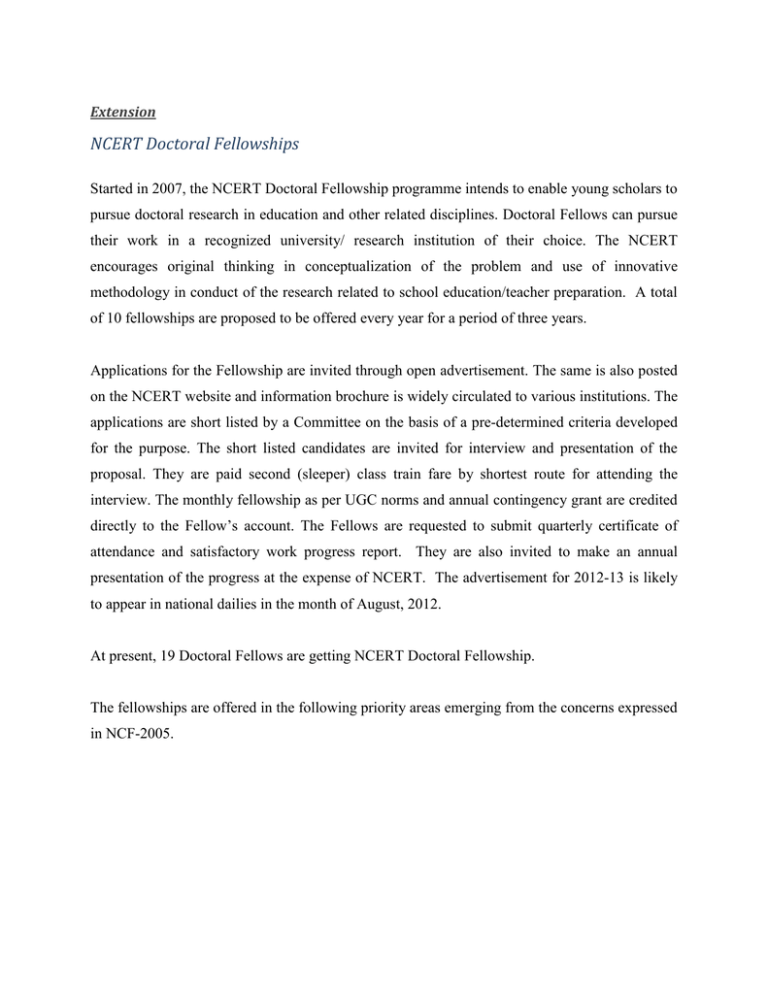
Extension NCERT Doctoral Fellowships Started in 2007, the NCERT Doctoral Fellowship programme intends to enable young scholars to pursue doctoral research in education and other related disciplines. Doctoral Fellows can pursue their work in a recognized university/ research institution of their choice. The NCERT encourages original thinking in conceptualization of the problem and use of innovative methodology in conduct of the research related to school education/teacher preparation. A total of 10 fellowships are proposed to be offered every year for a period of three years. Applications for the Fellowship are invited through open advertisement. The same is also posted on the NCERT website and information brochure is widely circulated to various institutions. The applications are short listed by a Committee on the basis of a pre-determined criteria developed for the purpose. The short listed candidates are invited for interview and presentation of the proposal. They are paid second (sleeper) class train fare by shortest route for attending the interview. The monthly fellowship as per UGC norms and annual contingency grant are credited directly to the Fellow’s account. The Fellows are requested to submit quarterly certificate of attendance and satisfactory work progress report. They are also invited to make an annual presentation of the progress at the expense of NCERT. The advertisement for 2012-13 is likely to appear in national dailies in the month of August, 2012. At present, 19 Doctoral Fellows are getting NCERT Doctoral Fellowship. The fellowships are offered in the following priority areas emerging from the concerns expressed in NCF-2005. • Education of the Disadvantaged: Disadvantages of different kinds because of belonging to scheduled and backward castes, scheduled tribes, and minority communities, and due to gender, disability, and living in difficult circumstances. • Classroom Processes and Practices: Multi-grade teaching, over-crowded schoolrooms, medium of instruction, languages used in the class, teaching-learning process, teacher concerns, evaluation practices, disciplinary techniques, and space and time management. • Curricular Areas: Teaching of science, mathematics, languages, social sciences, arts and crafts, work and vocational education, environmental sciences, and health and physical education. • Education for Peace: Conflict and its resolution in different spheres, problem of violence, respect for cultural diversity, values for living in harmony with people and nature, child rights, and sustainable development. Psycho-social Development of Children: Development of self, relationships and social skills, understanding and cognitive skills, communication skills, leadership, decision making, and coping with stress.
